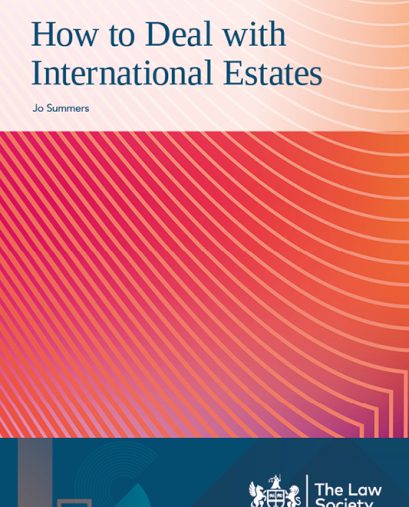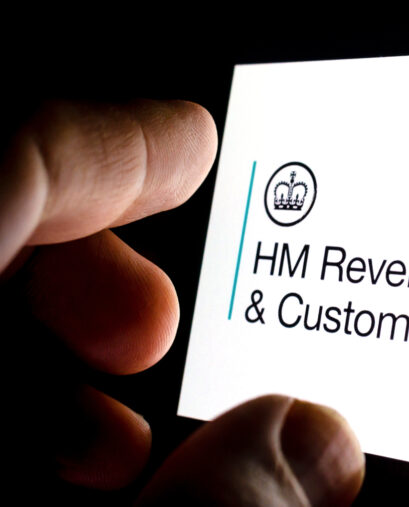Hive Umbrella and the DOTAS Rules: A case of disguised earnings?

A recent tax case involving Hive Umbrella Limited has shed light on how HMRC and the courts approach payroll schemes under the Disclosure of Tax Avoidance Schemes (DOTAS) regime — and what counts as a tax advantage through deferral.
Alex Peebles, partner in our Tax Disputes team, explores the background to the case which acts as a cautionary tale for companies designing non-standard remuneration models.
Background: What Happened?
Hive Umbrella was a payroll company employing contract workers — including some medics — through a scheme it described as a “bonus pot” arrangement.
In short, workers could opt into this model under which they received up to 85% of a potential future bonus as an “advance” (which Hive said were loans).
These payments were made without deducting income tax or National Insurance, with Hive claiming they’d be repaid from future bonuses, potentially paid out after three years or upon meeting certain company targets.
In June 2022, HMRC issued a “minded to” notice under section 310D of the Finance Act 2004, indicating it planned to issue a Scheme Reference Number (SRN) under the DOTAS rules on the basis that Hive’s arrangements were notifiable avoidance arrangements under DOTAS.
Hive may not have received the original notice owing to issues with the post, and appealed to First-tier Tax Tribunal (FTT). However, the FTT upheld HMRC’s decision.
What Did the Tribunal Find?
The Tribunal wasn’t convinced by Hive’s evidence. It found that:
- The “bonus pot” was never real — no bonuses were ever paid.
- The “advances” weren’t loans at all, but untaxed income disguised as loans.
- Hive never had a viable plan to repay these loans from actual bonuses.
- The business model wasn’t credible — the director couldn’t explain how the scheme worked in practice or how it would be funded.
In essence, the Tribunal concluded that the scheme was designed to defer tax on earnings, and therefore triggered DOTAS reporting obligations.
Why is this case interesting?
Despite the clear outcome against Hive, there are some puzzling elements in the judgment.
Firstly, the decision doesn’t set out in detail why HMRC considered the scheme notifiable under DOTAS in the first place — nor does it include much about Hive’s counterarguments, which seems odd given that Hive was represented by experienced tax counsel.
Secondly, the Tribunal concluded that the scheme resulted in a “deferral” of tax, which is a type of tax advantage under the DOTAS rules. That seems straightforward — but also somewhat contradictory.
The Tribunal found there was never any intention to pay bonuses at all. If that was the case, was there really any deferral of tax? And if the money was always earnings, disguised as loans, then wasn’t the tax simply avoided — not delayed?
It seems the Tribunal reached this conclusion based, in part, on a concession made by Hive’s director, who admitted the arrangement gave rise to a tax deferral which may have limited the Tribunal’s analysis.
What about the Rangers case?
The Supreme Court’s ruling in Rangers (2017) is key here. It held that if an employee diverts earnings (e.g., to a trust), tax is still due — even if they don’t receive the money directly.
The judgment also identified some exceptions, including contingent bonuses — where the employee has no vested right to the money unless certain conditions are met.
Lord Hodge gave an example: If a company sets up a fund that only pays out bonuses after certain performance or time-based criteria are met, those sums might not be taxable until the conditions are satisfied that enable employees to qualify for a bonus.
So, in theory, Hive’s “bonus pot” model could have worked.
If the Tribunal had found that the workers truly had only a conditional right to future bonuses, and if loans weren’t made upfront to replace current income, then there might not have been a tax deferral or avoidance at all.
This would be on the basis that there is no entitlement to the bonus until certain conditions set by the employer are satisfied.
If this argument holds, it means that there is nothing to “defer” until an employer declares that the conditions for paying the bonus have been met.
The DOTAS deferral test
Under section 318(1)(d) FA 2004, arrangements are disclosable if they provide for a deferral of tax. But the law doesn’t define “deferral” in detail. So, how should it be interpreted? Would it be interpreted by the test set out in Rangers or in some other way?
The Hive case itself does not contain much discussion about the test for deferment under DOTAS.
HMRC would likely argue that even if bonuses are conditional, if workers receive money today (styled as loans) instead of taxable earnings — and that tax won’t be paid until much later (if ever) — then that’s a tax deferral. In the case of Hive, on first glance at least, the FTT appeared to agree, but there’s a tension here.
The Tribunal found that the scheme was never really intended to pay bonuses and that the loans were earnings, so it’s difficult to reconcile those findings of fact with the Tribunal’s conclusion that Hive operated payroll arrangements which were intended to create a deferral of tax.
A cautionary tale for companies with non-standard remuneration models
The Hive Umbrella case is a cautionary tale for companies operating bonus models if they are supported by loans pending the payment of the bonuses.
HMRC — and the courts — will look beyond the labels and scrutinise whether the economic reality supports the legal form.
While contingent bonus schemes may work, it is crucial that any payroll company operating such models ensures its internal documentation and employment contracts align with the intended commercial outcomes.
As a minimum, this includes maintaining a properly structured loan book and setting out clear conditions for the payment of bonuses.
Following the Hive judgment, companies should seek professional advice to assess whether they are required to register the arrangement with HMRC under the relevant disclosure or registration regimes, because penalties can be payable for failures to comply with DOTAS.
For help and support with the issues explored in this article, get in touch.
Our team of contentious tax experts provides comprehensive support and representation in all aspects of tax litigation, both in the Tax Tribunals and High Court. We also represent clients in civil and criminal investigations by HMRC and other regulatory bodies.
If you have any questions, please contact:
Alex Peebles Partner - Tax Disputes +44 (0) 20 7846 2370 alex.peebles@jurit.comPlease note this paper is intended to provide general information and knowledge about legal developments and topics which may be of interest to readers. It is not a comprehensive analysis of law nor does it provide specific legal advice. Advice on the specific circumstances of a matter should be sought.








